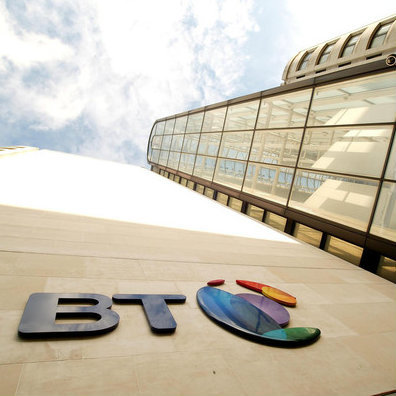Following a data-gathering exercise to gauge the ethnic makeup of its workforce, the UK operator will set targets.

BT is drawing up plans to fill a certain percentage of senior management roles with individuals from a Black, Asian or minority ethnic (BAME) background as part of its latest efforts to combat racism and prejudice.
Under an initiative dubbed the "Ethnicity Rapid Action Plan," the UK telco in late June said it would "create a new fast-stream for high potential people from ethnic minority backgrounds."
BAME individuals enrolled into the scheme will receive personal mentoring from a member of BT's senior leadership team. The company also revealed it would have "diverse shortlists for every senior management role."
As part of the plan, BT is trying to figure out how many of its senior management employees are currently from a BAME background. It intends to set a "baseline" after it has completed a data-gathering exercise, a spokesperson told Light Reading via email in response to questions.
About half of the entire organization's employees have not previously disclosed their ethnicity to BT, the operator revealed. Of the other half, around 15% are from a BAME background, according to BT's spokesperson.
During the UK's last population census in 2011, around 13% of the population identified as BAME.
"We're not setting a target until we've completed the data collection exercise, which will let us set a baseline," said BT's spokesperson by email.
Asked if the plans could fall foul of the UK's Equality Act, which forbids the use of quotas, BT's spokesperson said: "The spirit (and letter) of the Equality Act is precisely what we will be implementing to its fullest extent to ensure equal opportunity across BT."
The Equality Act currently regards the use of quotas as an example of "positive discrimination," although there have been calls for a rethink in response to charges of institutional racism in the UK.
In a blog published last year, Philip Sayers, a lawyer for UK firm Coodes, said: "An employer is guilty of positive discrimination if they hire or seek an individual based purely on their protected characteristic, rather than experience or qualifications. Protected characteristics include race, gender, age, disability, religion and sexual orientation."
Opponents of any shake-up argue that positive discrimination would necessarily be unfair on candidates for a job who did not have protected characteristics. They have also warned it could lead companies to hire people who are less qualified for a particular role than other candidates.
Want to know more about 5G? Check out our dedicated 5G content channel here on Light Reading.
While quotas are currently illegal, employers have been able since 2011 to favor underrepresented minorities during recruitment activities through measures classed as "positive action" by UK law.
"In this instance, an employer can choose to hire an individual from an underrepresented group as long as they are as qualified and fit for the role as the other applicants," said Sayers in his blog.
Besides creating the BAME fast track, BT said it would launch a new program of "mandatory race awareness training" for all employees.
Each member of its executive committee will also be required either to have an "ethnic minority reverse mentor" or to serve as a non-executive director for a community organization that targets ethnic minorities.
BT employed about 105,000 people internationally at the end of March, according to its latest set of financial results.
Related posts:
— Iain Morris, International Editor, Light Reading
Read more about:
EuropeAbout the Author(s)
You May Also Like










